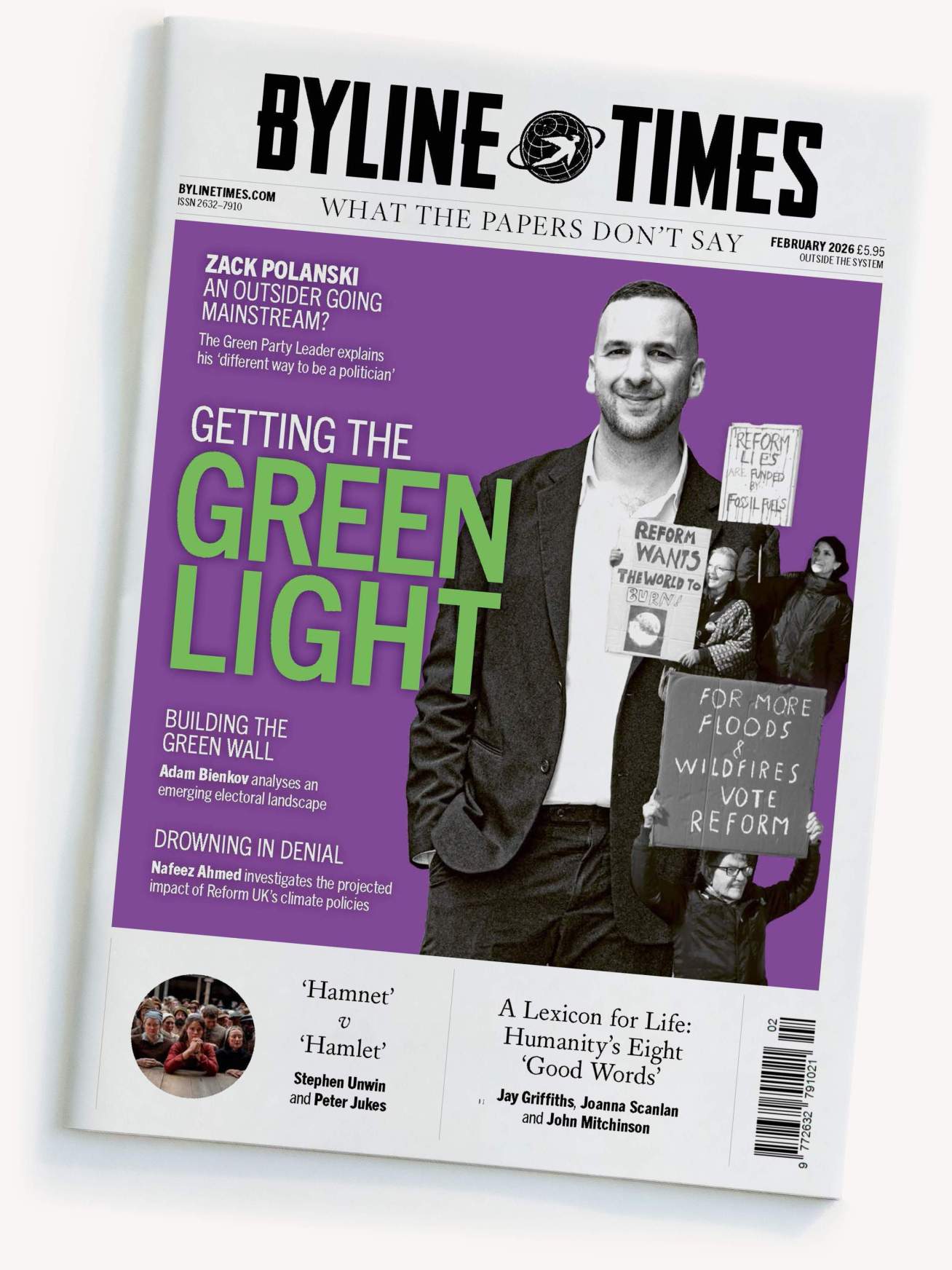
Read our Monthly Magazine
And support our mission to provide fearless stories about and outside the media system
“You have to assume that at some point something’s going to be cooked up about you – some sort of smear – or there will be another vote, and then they will suspend you.”
I’m speaking to a Labour MP who voted against the Government’s recent disability benefit cuts and now fears they will be the next victim of what they describe as the “punishment beatings” being dished out to Labour rebels suspended from the party.
“I’m on a hair trigger. I know that”.
“And you can go around worrying about it, but I think there’s a sense now that it’s going to happen, and it probably doesn’t really make much of a difference what I do.”
“Either I’m going to come out of the room dead, or a made man. You just have to assume that. It’s the only way, psychologically, that you can continue to operate.”
We’re speaking after Starmer’s Government, following the reported advice of Chief of Staff Morgan McSweeney, green-lit the suspension of four more Labour MPs for their roles in recent parliamentary rebellions.
The suspensions, which included the well-liked moderate soft-left MP Rachael Maskell, have been a clarifying moment for many in the party.
“I think when it was only happening to the hard left, most MPs thought ‘oh it’s fine, it’s not my problem’”, the MP says,
“But now with what they did to Rachael, the soft left are beginning to realise what’s really going on here.”
A day after Maskell’s suspension, veteran left-winger Diane Abbott was suspended for a second time over comments she made about race and minority groups.
Taken together, it adds up to what looks to many like a campaign of revenge for the recent series of U-Turns forced on the Prime Minister by his MPs.
“When something like [the U-Turns] happen, you can do one of two things. You can either say, ‘what do I learn from this? How do I make sure that doesn’t happen again? What can positively come out of this?’ Or you go away, lick your wounds and plot your revenge” the Labour MP tells me.
“They chose the latter”.
McSweeney Unleashed
The suspensions appear to carry all the hallmarks of McSweeney.
In the run up to the recent welfare vote, Starmer’s chief of staff reportedly pushed for mass suspensions of Labour rebels – ten an hour – in order to force Labour MPs back into line.
It was strategy that was only abandoned by the Prime Minister after it became clear it could have led to the Government losing their parliamentary majority altogether.
In the wake of the vote Starmer promised to forge better relations with his party and described the new consensus on welfare as being “common sense”.
The Prime Minister also signalled a broader intention to change course, apologising for his “island of strangers” speech, and dialling down his rhetoric on immigration.
However, while Starmer may have briefly retreated, some of this closest advisers did not.
And with some Labour MPs already signalling their intention to vote against the Government about other upcoming cuts, the Prime Minister appeared to have been persuaded to let allies of McSweeney off the leash.
The timing of the resultant suspensions could not have been worse, however, coming as they did on the same day that news emerged of the Conservative party’s involvement in spending hundreds of millions of pounds covering up the Afghan leak scandal, along with the revelation that their leader Kemi Badenoch had refused an official security briefing on the issue earlier this year, because she thought it wasn’t important enough to bother turning up to.
Not for the first time, what looked like a real crisis for Badenoch and her party, was derailed by yet more self-inflicted Labour division.
It echoed a similar moment this time last year when those around Starmer spent almost two weeks of the general election campaign getting involved in an attempt to oust Diane Abbott and other prominent left-wing MPs and candidates from the party prior to polling day.
The ostracisation of the left has only continued since the election, culminating in the decision by suspended Labour MPs Jeremy Corbyn and Zarah Sultana to announce that they plan to start a new political party on the left, rather than hold out any hope of readmittence.
Yet while some Labour administrations may have seen such an announcement as a threat, some of Starmer’s allies see it instead as being an opportunity to fulfil their long term mission of getting rid of what remains of the left of the party, not just inside Parliament, but among the membership too.
For the many opponents of the Labour left in the party this may not seem like a bad thing.
However, some of those targeted by McSweeney’s campaign believe there is a broader strategy to ultimately get rid of Starmer as well, and replace him with the Labour’s right preferred candidate Wes Streeting.
“I think their calculation may be that if we can piss off enough of the soft left and the left in the party that still overwhelmingly dominates the membership, to the point where they leave, then it gives Wes, or a Wes like candidate, a much better chance for the membership,” the MP tells me.
The End of the Party
Unfortunately for Labour it’s not just disgruntled Labour members and MPs who are spying the exit door, but some of their major funders in the trade union movement too.
Unite leader Sharon Graham recently told the New Statesman that it was becoming “harder to justify” her union staying affiliated to Labour.
Disaffiliation would leave Labour heavily short of cash in the run up to the next general election campaign, and increasingly reliant on private donations from figures in the city.
Such an outcome would be a major break with the founding purpose of the party, yet it is one that is increasingly being openly discussed by senior trade union figures.
“We are affiliated to Labour, we have a history of being affiliated to Labour, but you can’t just blindly affiliate and blindly pay members’ money into an organisation that, those members feel, is not speaking for them” Graham told the magazine.
ENJOYING THIS ARTICLE? HELP US TO PRODUCE MORE
Receive the monthly Byline Times newspaper and help to support fearless, independent journalism that breaks stories, shapes the agenda and holds power to account.
We’re not funded by a billionaire oligarch or an offshore hedge-fund. We rely on our readers to fund our journalism. If you like what we do, please subscribe.
“The Labour Party… [is] about being the voice for workers; not being embarrassed to be the voice for workers – but [being] very clear so that workers know, ‘if you vote Labour, they’re on your side’.
“If more and more people are saying, ‘Hang on a minute, I’m not sure about that anymore’, then it’s harder to justify the affiliation.”
For at least one Labour rebel MP, it is an outcome that looks increasingly likely.
“Come the conference, those inside Unite that have long wanted to disaffiliate from the Labour Party will be in a very strong position, given how unpopular Labour is now with a big demographic of working people…
“And I think that history will look back on that and see it as a real turning point.
“It all just feels like the end of days for the Labour Party as we know it.”
This is an edited version of an article that first appeared on the Folded With Adam Bienkov Substack


